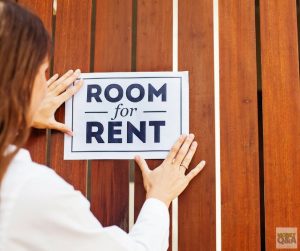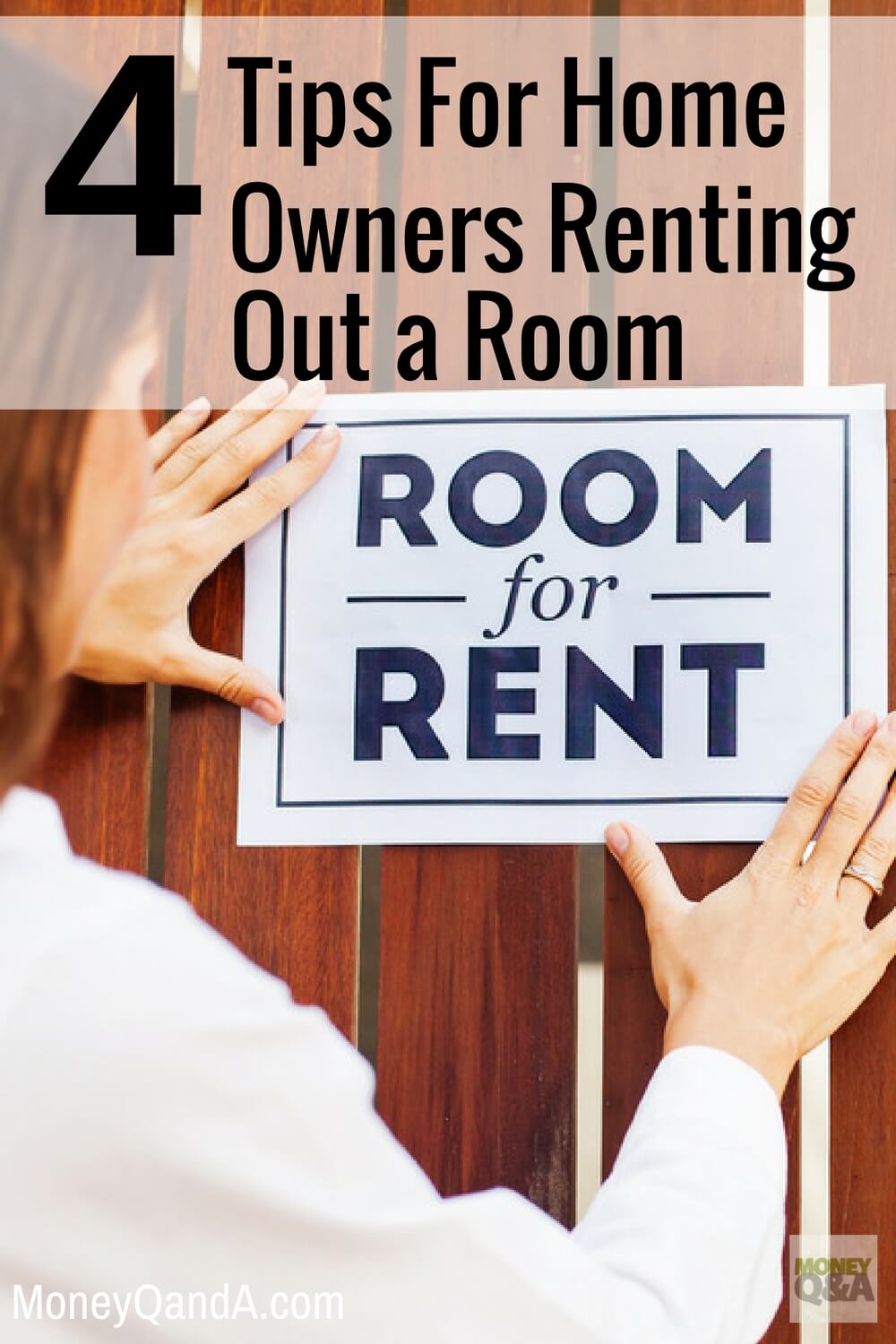
Over one-third of Americans are renters, which means demand is consistent for non-homeowners seeking places to live without the burden of a down payment and mortgage.
Tips for Homeowners Renting Out a Room
Even if you only have one bedroom available, there are a few things to consider before renting out a room in your home:
Host with Airbnb or Rent Long-Term?
Millions of people love finding accommodations on Airbnb, and hosts even have the option of offering long-term Airbnb rentals. There are many advantages to hosting guests through Airbnb.
You’ll meet tons of fascinating new people from around the world, you might make more money if you live near a popular tourist destination, and you can stop hosting whenever you want to, rather than waiting for an annual rental agreement to expire.
Of course, there are also some downsides to Airbnb hosting, such as more cleaning, possible property damage, and having to deal with rude guests. Luckily, as a short-term rental option, these bad eggs won’t be around for long, and Airbnb’s rating system for guests and hosts allows you to check out what other hosts had to say about your potential guests before you rent out your home to strangers.
It’s also worth noting that there’s a whole website dedicated to nightmarish Airbnb experiences – Airbnb Hell – but remember that millions of people host and stay with Airbnb, so the likelihood of having a bad experience is relatively small.
There might be more stability with a yearlong lease agreement with a single person or couple, but if any issues arise during the rental period, it could make for an awkward living arrangement until they ultimately move out. Despite its flaws, Airbnb at least offers you a way out if you want a break from visitors for a while.
Over one third of Americans are renters. Here's how to make money renting out a room.Click To TweetHow to Determine Rent Prices
If you decide to forgo the short-term Airbnb route in favor of having a tenant pay monthly rent, how do you decide what to charge in rent? Your objective should be earning a profit. Landlords who treat renting like a hobby aren’t likely to succeed. So, do your research before putting up a price.
Check Craigslist and other housing rental websites to see what other homeowners in your community are charging for rooms in their homes. Evaluate what amenities you have to offer and how you’ll factor those into the monthly cost.
Once you list a room for rent and get a few tenant applications, be sure to scan each application thoroughly to avoid problems later on. Many landlords also require an upfront security deposit equal to the first month’s rent (so a $400 room would come with a $400 security deposit plus the first month’s rent before the tenant can move in).
You can lay out all the terms and protect yourself from legal troubles by putting together a rental agreement and having your tenant sign it as a precondition for moving in.
To Furnish or Not to Furnish?
Furniture and other décor will cost you some money upfront, but furnishing a room could allow you to charge more for monthly rent. Before you immediately drive off to Ikea and Home Goods, perform some more research to see if there’s even demand for furnished rooms in your area.
If you live in a college town, then students would appreciate the opportunity to rent a fully furnished room, rather than having to drop thousands of dollars on their own furniture while simultaneously paying for tuition and other school-related expenses.
Sharing the Household Amenities
Renting a room to a stranger can be awkward at times, but you can minimize conflict and cringe-worthy situations by clearly outlining the rules of the household before they move in. For instance, you might choose to have them pay a flat rate of $50 per month to cover their share of the utilities, or you might just simply charge a higher rent and list your room as “Utilities included!”
Some other questions you’ll want to consider:
- If you have a washer and dryer at home, should your tenant pay you a couple dollars each time they use it? Or do you want to include that in their monthly rent as well?
- What about space? Are they allowed to use any room in the house – aside from your bedroom and bathroom, perhaps – or are they limited to their own bedroom and bathroom?
- Is a parking spot included?
- Are they allowed to use the refrigerator and other kitchen storage? How do you divvy up that space? Can they use the dishwasher or are they required to clean their own dishes manually?
Renting a room in your home to a college student, foreign exchange student, single parent, out of town visitor, or elderly person can be an emotionally gratifying and profitable venture. It will come with some obstacles along the way.
But, if you do your research beforehand and thoroughly examine your potential tenant’s background before signing on the dotted line, you should be ready to rent out one of your spare bedrooms.


I definitely think that before renting out a room in your home there is a lot of thought and research that needs to go into it before hand. Personally for me, I probably would not go with the Airbnb route, I would probably go with a longer term renter with a lease and do a background check and be more thorough. Great information, thanks for sharing!